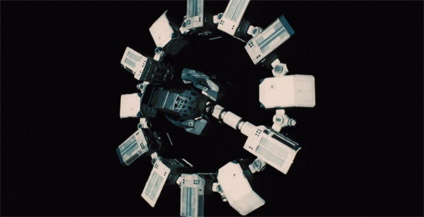|
|
Movie Review: InterstellarBy Matthew HuntleyNovember 10, 2014
Given the genre and Hollywood’s tendency to let style overshadow substance, you’d think a movie about intergalactic space travel would eventually allow its special effects to take over simply for special effects’ sake, but that’s not the case here. The visuals and sound serve a purpose; they don’t just give us something grandiose to look at and hear but function to place us in the characters’ position. This notion is nothing new and it’s what all movies hope to achieve with their special effects, but it’s unfortunately rare that it’s done this well - so well, in fact, that we forget there even are special effects. They are that convincing and so, in a way, the characters’ mission becomes our own because we feel like we’re right there with them. Interstellar becomes a complete, seamless experience, and by the time it enters its second and third acts, in which time has gone by faster on Earth than in space, and it introduces new developments, characters and actors, including Jessica Chastain as an adult Murph, Matt Damon, Casey Affleck, and Topher Grace, there isn’t an abrupt shift in the storytelling. Everything comes together fluidly. As serious and profound as it is, the reason I think Interstellar works as well as it does is because Nolan and his team ultimately have fun with their resources and do all they can (and more) to lift the story off the ground. I’m sure there will be countless theories about the ending, which will draw equal amounts of praise, criticism and mockery, but any way you look at it, this is an intelligent, coherent and affecting film that never stops moving, despite its near three-hour runtime. I’m even inclined to say it’s Nolan’s best filmmaking effort yet, at least on a pure experience level, and given his repertoire (Memento, the Dark Knight trilogy, Inception), that’s a bold and daring statement. But then, Interstellar is also a bold and daring film.
|

|
|
|

|
Friday, November 1, 2024
© 2024 Box Office Prophets, a division of One Of Us, Inc.


